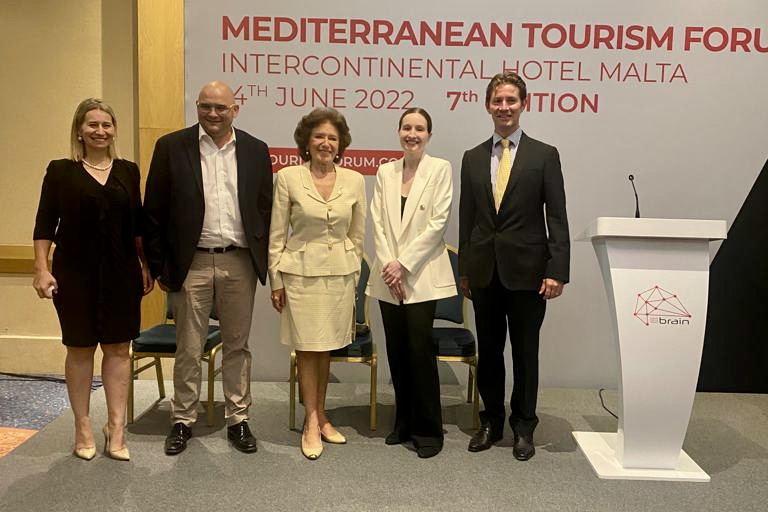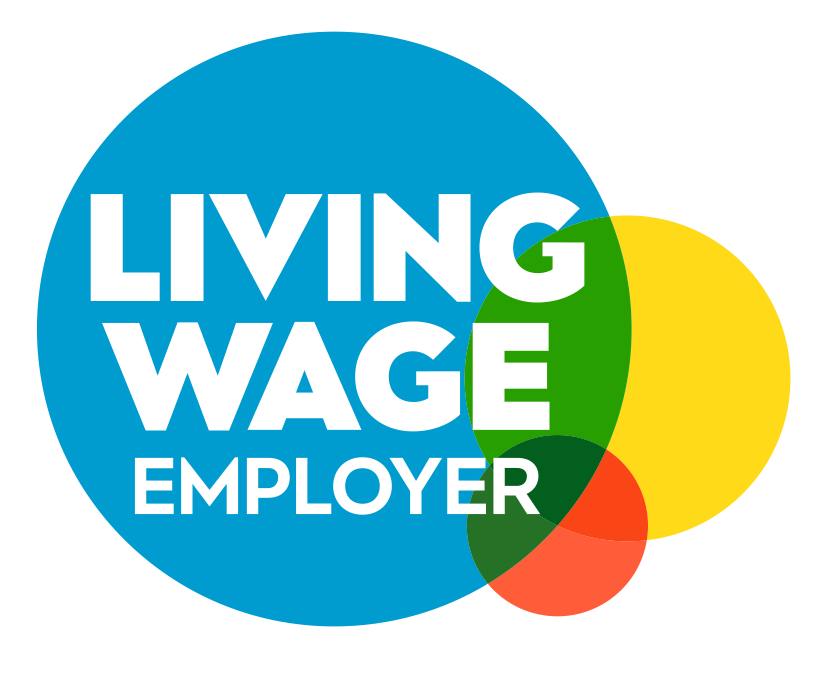Empowering women innovators will be critical for building a stronger and more sustainable global tourism industry, our CEO Eva Barboni explained during a recent panel discussion at the 2022 Mediterranean Tourism Forum in Malta.
The Mediterranean Tourism Forum is held annually to promote strategies for the sustainable growth of tourism across the Mediterranean region. This year, in light of recent global challenges including the COVID-19 pandemic and the war in Ukraine, the Forum centred around the theme of the ‘Mediterranean BRAIN,’ inviting participants to think creatively about the obstacles facing the tourism industry and explore solutions for the road ahead.
In a panel discussion entitled ‘Why We Need Women To Have a Larger Role in Innovation,’ Eva joined sector experts and public leaders including Dr. Ivana Zerec, Consul General for the Republic of Croatia in Istanbul, Simon De Cesare, CEO at the Eden Leisure Group, and George Gregory, Partner at RSM Malta, to discuss the relationship between women’s leadership and a more sustainable and resilient tourism sector.
The session began with a keynote address by the former President of Malta, H.E. Marie-Louise Coleiro Preca, who outlined the “pivotal role” that tourism will play in achieving the Sustainable Development Goals (SDGs). With forecasts now indicating that tourism will create one out of every three new jobs globally, the industry has the power to catalyse economic growth in a way that both empowers women and contributes to achieving net zero.
Achieving this will require a recognition and expansion of women’s role in innovation, Eva explained. Growing evidence shows that gender diversity in leadership teams leads to improved business innovation, creativity, and performance, helping companies find more effective and novel solutions to the challenges of the twenty-first century.
Despite this, and despite making up 54% of the global tourism workforce, women working in tourism remain significantly overrepresented in low-level, precarious positions and are far less likely than their male counterparts to hold positions in senior management or on leadership boards. This inequality stems from both systemic barriers to women’s advancement and deeply-rooted gender biases, Eva noted. Misconceptions about the “risks” of promoting women due to maternity leave and gender imbalances in unpaid work at home are amongst the many factors holding women back.
Eva also noted that it is important to avoid gender traps when advocating for women’s advancement. For example, when citing the benefits of women’s leadership, many people default to stereotypes that women are naturally more nurturing and empathetic. However, this narrows the perception of what makes an “acceptable” woman leader, excluding women who don’t fit the mould.
Other obstacles to women’s advancement as leaders and innovators include a lack of access to funding and professional networks. In a recent survey of women innovators in the UK, 62% of respondents said that securing funding is their single biggest challenge, noting that funding organisations are often inaccessible to those without the knowledge or networks to navigate the application process. These challenges are borne out in the data: a recent report by research firm PitchBook, for example, found that women-founded companies received only 2% of venture capital funding in the U.S. in 2021.
Increasing women’s access to money and networks and challenging prevalent gender biases will therefore be vital in helping women innovators succeed. Women-led venture capital firms are a good place to start, Eva observed. She pointed to reports showing that women venture capitalists are twice as likely to invest in women founders and three times more likely to invest in women CEOs than their male counterparts. Collectives and associations set up to support women entrepreneurs and innovators can also help them gain access to powerful mentorship and expertise, particularly in emerging markets. Finally, shifting social and work cultures to value different perspectives and recognise women’s experiences and capabilities will be critical to facilitating change. Male allies can play a key role in driving this shift.
With climate change now representing an “existential threat” to humanity, the demands on the global tourism industry are greater than ever before. Ambitious recovery plans will be needed to achieve the SDGs and ensure the inclusive growth of tourism in the Mediterranean region and around the world. As Eva and the panellists discussed, only by taking steps to advance gender equality and support women innovators can we meet these ambitious targets.




